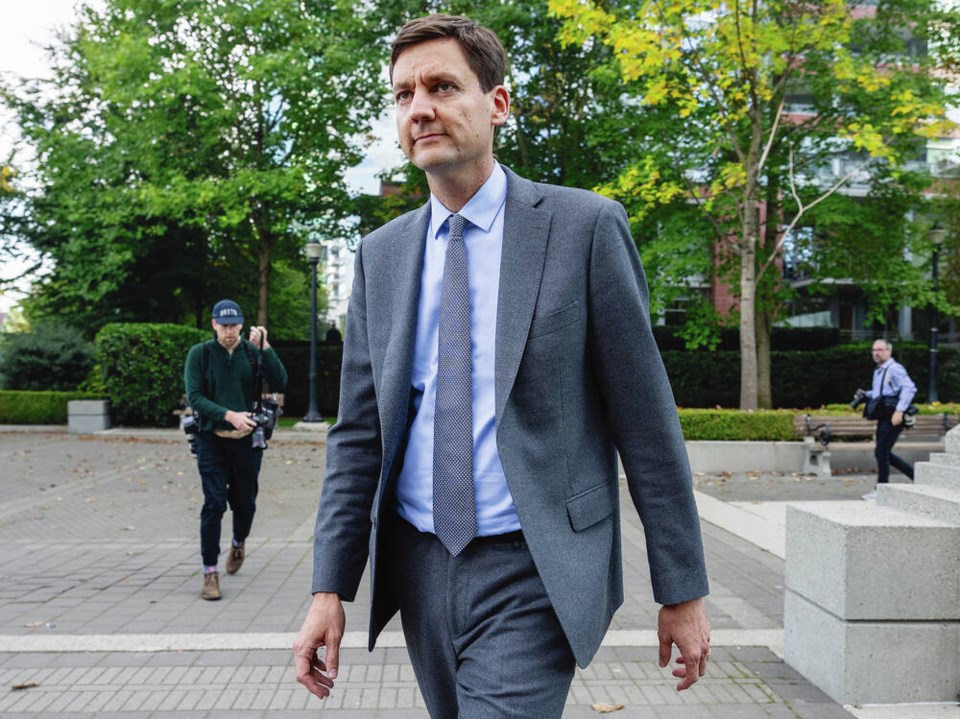B.C. has seen its share of political intrigue as of late.
After a hotly contested race to pick a new leader, the NDP disqualified Anjali Appadurai, who posed a significant challenge to the front runner candidate David Eby, who will succeed John Horgan as premier.
While the dust continues to settle around the politics of the leadership race, the climate policy gauntlet that Appadurai’s candidacy threw down endures. Appadurai mobilized thousands of people around this issue – a fact that has obviously not been lost on Eby.
He has made more decisive action on climate a key plank of his 100-days plan, has said that he wants climate activists who supported Appadurai to stay in the party, and has promised to redirect fossil fuel subsidies to clean energy projects.
But Eby faces an uphill battle to re-establish the NDP’s climate credibility, after Appadurai’s campaign drew unwelcome attention to myriad failures of leadership under his predecessor’s watch.
At a minimum, he should ensure B.C. complies with its own climate law.
B.C.’s climate law, officially the Climate Change Accountability Act, establishes sequential carbon pollution reduction targets for B.C. over the next 30 years as well as sector-specific targets, including for the highly polluting oil and gas sector.
One of the requirements of the law is that the government publish an annual report on its progress towards those targets. That’s the accountability part of the law – a feature that was introduced in 2019 by the NDP as a response to B.C’s dismal track record of missed targets.
Eby himself has at least acknowledged that B.C.’s legislated climate targets are of “significant importance.” Reassuring words from a lawyer and the former attorney general. But, the 2021 climate report fell woefully short — failing to explain how it would make progress against key climate targets. This is why Sierra Club B.C., represented by Ecojustice lawyers, took the government to court to demand a complete, and legally compliant, climate plan.
The hearing wrapped up in B.C. Supreme Court in early October, but a judge could soon rule that the government has failed to be sufficiently transparent over its plans to cut carbon pollution.
Under the cold light of judicial scrutiny, B.C.’s claims to climate leadership could suffer further damage.
Regardless of the outcome of this case, an Eby government must direct the minister of the environment to provide a clear, credible and complete plan for achieving all its climate targets, so the public can understand if the province is on track or if – as we suspect — much more action is needed.
Eby must also commit to strengthening B.C.’s climate laws. In this respect, the government already has a head start with existing and workable climate legislation, unlike many other provinces in Canada.
The NDP under Horgan vowed to strengthen the Act’s 2050 target to achieve net-zero emissions — it’s currently set at an 80% reduction from 2007 levels. Eby should restate this commitment in his government’s mandate and prioritize it on the legislative agenda.
Opening up the act in the next legislative session would create an opportunity for other important amendments that would demonstrate climate leadership in Canada. Crucially, the act must be consistent with the United Nations Declaration on the Rights of Indigenous Peoples, as required by the Declaration on the Rights of Indigenous Peoples Act.
Since the B.C. NDP was elected in 2017, B.C.’s carbon emissions have continued to rise in spite of the government’s claims to climate leadership. In the meantime, people living in B.C. have been battered by devastating floods, fires and extreme heat.
Eby has a responsibility to act quickly and decisively to protect the lives and livelihoods of people in B.C. and to ensure the province does its part to avoid the worst impacts of the climate emergency. Complying with his party’s own climate law would be a good place to start.
>>> To comment on this article, write a letter to the editor: [email protected]



